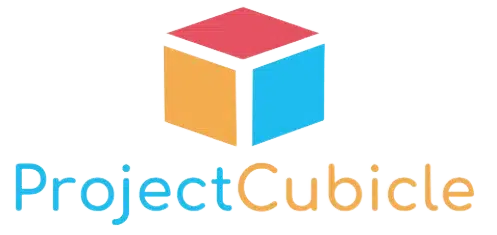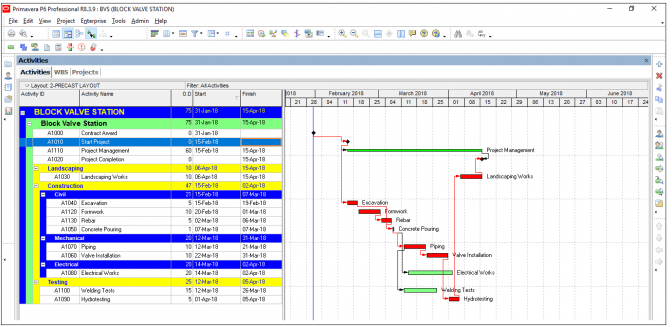You can plan your costs with Primavera easily. This approach can distribute your project budget across your Work Breakdown Structure. Hence this bottom up estimating is ensuring optimal resource planning from the outset.
Table of Contents
With estimation weights to each WBS element and activity, you can know where resources are. This cost loading approach provides a good look about financials. Hence, it is allowing you to make good decisions about budget allocation.
top down estimating
Top-down estimating is good for projects with strict budgets. It is particularly for lump sum/fixed-price projects. If you use estimation weights, you can ensure your budget is all in the way. So, you will not overspend.
It can also evaluate the project proposal at the strategic level. Oracle Primavera P6 allows you to make a top-down estimation and bottom-up estimation.
Top-Down vs. Bottom-Up Estimating in Primavera P6
Project management pros often confuse top-down estimating and bottom-up estimating within Primavera P6. While both techniques predict project costs and durations, their approaches differ.
Top-down estimating is good for estimations in the beginning. It uses historical data, expert judgment and industry benchmarks. And then, it creates a preliminary budget and timeline. This approach is particularly beneficial for projects for strict budgets.
top down estimating in project management
You can assign estimation weights to the Work Breakdown Structure. This cost loading technique offers a good starting point.
top down estimation in Primavera P6
Bottom-up estimating takes a more general approach. Project teams look into the WBS and estimate the time and resources for each individual task. This analysis is good than the previous as you continue the project.
Top-Down Estimating:
Top-down estimating is super quick and efficient. Because it gives you a big-picture view of project costs and timelines. It’s especially handy for projects with set budgets. You can also use estimation weights to spread resources evenly across tasks. Because it helps start resource planning with clear project’s financials. However, we must say that it might not be as accurate as bottom-up estimates.
Bottom-Up Estimating:
Bottom-up estimating is all about being detailed and accurate. It breaks down project costs and timelines by analyzing each individual task. As the project moves, this method is actually better than initial top-down estimate.
Top-Down Estimating vs Bottom-Up Estimating
Project management pros often confuse bottom-up and top-down estimating. Because they are thinking as same thing. But they are actually quite different. With top-down estimating, you get a high-level overview. While bottom-up estimating involves the team working at the task level. In the early stages, top-down estimating helps predict costs or timelines. But as the project progresses, those detailed bottom-up estimates is more useful.
Professionals working in the field of project PDF
| Feature | Top-Down Estimating | Bottom-Up Estimating |
|---|---|---|
| Approach | High-Level Overview | Task-Level Breakdown |
| Project Phase | Early Stages | Detailed Planning |
| Data Source | Historical Data, Expertise | Individual Task Analysis |
| Keywords | Budget Allocation, Estimation Weights, Cost Loading | Work Breakdown Structure (WBS), Resource Planning |
| Ideal Projects | Lump Sum/Fixed-Price | Well-Defined Scope |
If you are combining both top-down and bottom-up estimating techniques in Primavera P6, project managers can have total understanding of project scope and needs.
1. Streamline Resource Allocation with Top-Down Estimating in Primavera P6
Primavera P6’s top-down estimating feature can really help you out. This handy tool lets you spread your overall budget across your project’s Work Breakdown Structure (WBS). Hence, the resource planning can become easier and more efficient. You will assign each WBS element and activity. So that, you can easily see where you need to focus your resources the most. This cost-loading method gives you a picture of financials.
2. Conquer Resource Planning with Top-Down Estimating in Primavera P6
High-level resource planning is necessary for a project. But how do you make sure your resources in use without loss? This tool helps with resource allocation easily.
bottom up estimating
With bottom-up estimating, you can assign estimation weights to the elements and activities. This makes it easy to figure out the proportional resource needs. And cost-loading method gives insights into what your project will require in future.
3. top down estimating in project management in Primavera P6
Estimation weights are the cornerstone of top-down estimating in Primavera P6. These weights act as a guiding light. Because they are helping you distribute your project budget across your Work Breakdown Structure (WBS).
In this way, you can define the relative effort for each stage. This crucial step forms the basis for resource planning and cost loading within your project schedule.
top down estimating in Primavera P6
Top-down estimating with estimation weights is a boon for projects with limited upfront information. Such as lump sum/fixed-price projects. But here, you can create a high-level resource allocation plan even when detailed breakdowns are unavailable.
How do I create a WBS: Creating a Work Breakdown Structure in Excel
Top Down Estimating in Primavera P6
Estimating is known as the practice of predicting the cost and tim to deliver the project deliverables. Also, since top-down estimating is used when there is little information available for the project, the estimating process is needs an expert.
There are some techniques in conjunction with top-down estimating. For example, apportion method is a top-down estimating technique. Here, you can calculate the cost of individual tasks as a percentage of the total project cost (direct costs and indirect costs).
For a better understanding, let’s review the simple example below.
We have a Block Valve Station project as shown in Figure 1.

We will open the Work Breakdown Structure (WBS) window by selecting Project | WBS from the main top drop-down menu, Figure 2.

Now we will add Est Weight and At Completion Total Cost columns as shown in Figure 3.

Est Weight of Construction is 8 (Civil:2, Mechanical: 3.5, Electrical: 3), Testing is 1, Landscaping is 0.5. Total is 9.5 but we will insert 10 Est Weight for the Block Valve Station, Figure 4

We will insert 0.5 Est Weight for the Project Management activity from the “Activities” window.
In the “Activities” window, we will add “Est Weight”, Budgeted Labor Units, Budgeted Labor Cost, and Budgeted Total Cost columns, Figure 5.

Now we will distribute the total “Est Weight” of each WBS, to its activities. Also, all our weights should be distributed among deliverables and activities, Figure 6.

We will insert a labor resource and unit price($100/hr) for the resource, Figure 7

After assign the “LABOR” resource to the activities, we will perform the Top-down estimate. We will select Tools | Top Down Estimation from the main top drop-down menu, Figure 8.

In the “Top Down Estimation” window, we will select the project WBS for the WBS box. Also, the resource is “LABOR” and we will budget 500 Hour effort for all project. Figure 9.

Then, we will select “Apply” and see how our 500-hour effort is distributed among activities and associated deliverables, Figure 10

We can also see the unit and cost distribution at WBS level, Figure 11

Figure 11
Let’s assume that our budgeted 500-hour effort will increase 20 percent due to the weather conditions. Also, we will calculate the impact of this increase by add 20 % to the “Apply adjustment” box in the “Top Down Estimation” window, Figure 12.

As shown in Figure 13, budget units and costs are increased 20 percent based on our adjustment.

bottom up estimating
Now we will save this estimate for future references. In the “Top Down Estimation” window, we will click “Save As” and fill the “Estimate Name” box, Figure 14

Figure 14
We can see the history by clicking the “History” button in the “Top Down Estimation” window.
Summary: top down estimation in Primavera P6
Top-Down Estimating: A Quick Start for Project Costs
Also, unlike other methods that require a deep dive into individual tasks, estimates provides a view. What’s even better? Also, you can combine estimates with other techniques like consensus methods (gathering team input) or ratio methods (leveraging historical data from similar projects).
top down estimating in Primavera P6 for Project Duration
You can also use estimates to get a rough idea of how long your project will take. Consider it the opposite of estimates, where you break down each task and add up the time for everything.
The Trade-Off: Speed vs. Accuracy
Inaccurate estimates can lead to conflict and project issues down the road.
Primavera P6 Makes Top Down Estimating Easy
This project management software estimates. Also, here’s how: Within Primavera P6, you can assign a budget to both activities (specific tasks) and deliverables (project outputs). It even lets you see how changing the budget percentages affects the overall plan. Plus, you can save your estimates for future reference.
Also, project control engineers, take note! Feel free to share your experiences with Primavera P6 (top down estimation in Primavera P6) and estimates in the comments below.
External References

Irma Gilda is chief executive of Sonic Training and Consultancy Co., the training platform offers project planning and scheduling More than 60 k learners have used the platform to attain professional success. Irma is a professional Primavera P6 Trainer.















